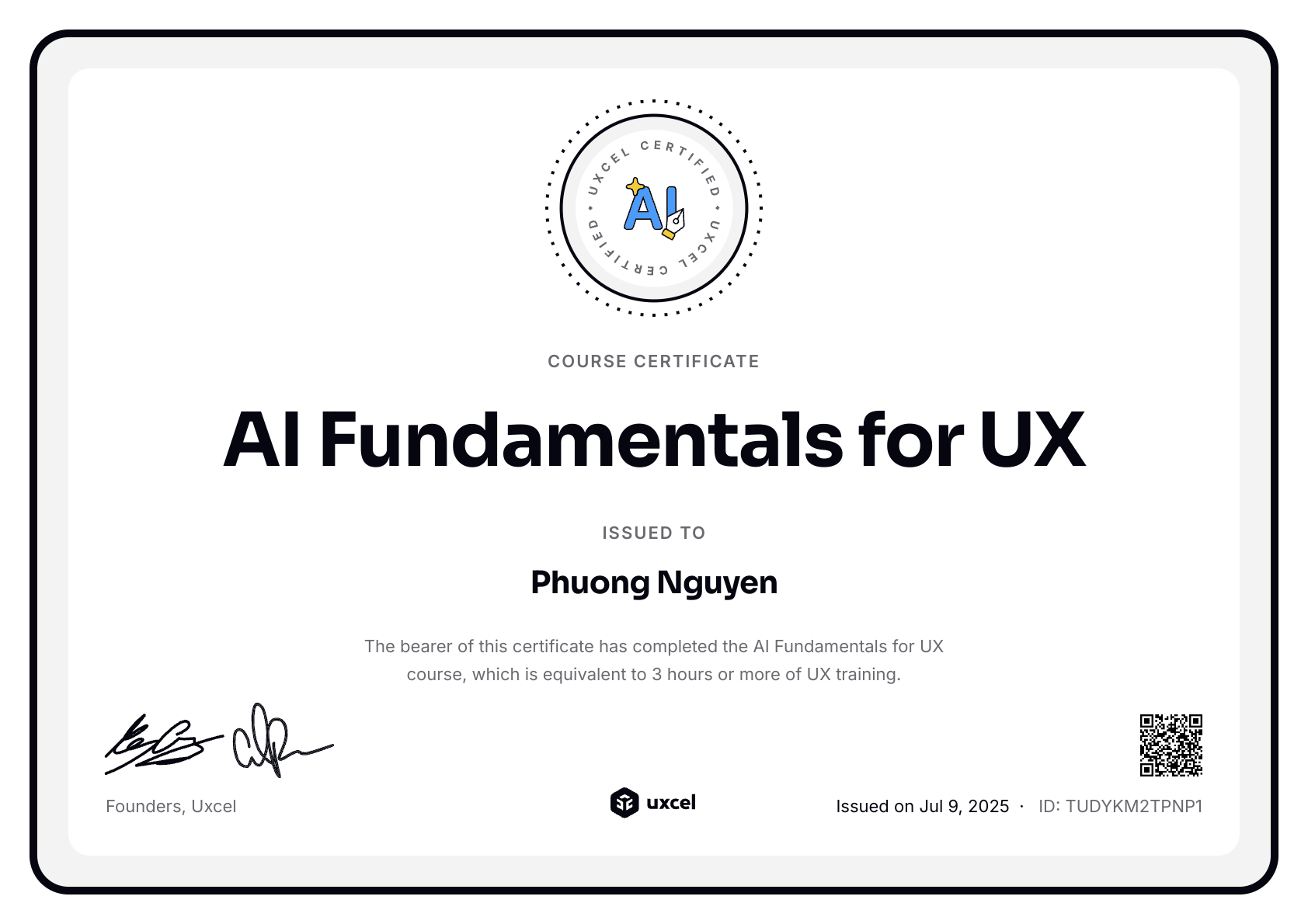Certificate of completion
AI Fundamentals for UX
The bearer of this certificate has completed the AI Fundamentals for UX course, which is equivalent of 3 hours or more of professional training.

Explore popular courses

Human-Centered AI

AI Prompts Foundations

Product Analytics
FAQs
As AI transforms digital products from simple tools into learning, adapting partners, designers need new skills to create experiences that truly benefit users. This course bridges the critical knowledge gap between traditional UX and AI-powered experiences.
The skills you'll learn are increasingly in demand across industries, as companies integrate AI capabilities into their products and services. While primarily designed for UX professionals, this course offers valuable insights for product managers who need to define AI feature requirements, developers who implement AI interfaces, content strategists crafting AI voice and personality, researchers studying AI interactions, and business leaders making strategic decisions about AI implementation. Even marketing professionals and customer experience specialists will benefit from understanding how AI transforms user journeys and touchpoints.
You'll gain practical frameworks and techniques to collaborate effectively with data scientists and engineering teams, advocate for user needs in AI development, design appropriate guardrails for AI behaviors, and create experiences that harness AI's potential while mitigating its inherent risks. These competencies will prepare you to lead design for next-generation AI products and help bridge communication gaps between technical and non-technical team members working on AI initiatives.
As AI transforms digital products from simple tools into learning, adapting partners, designers need new skills to create experiences that truly benefit users. This course bridges the critical knowledge gap between traditional UX and AI-powered experiences. The skills you'll learn are increasingly in demand across industries, as companies integrate AI capabilities into their products and services. You'll gain practical frameworks and techniques to collaborate effectively with data scientists and engineering teams, advocate for user needs in AI development, design appropriate guardrails for AI behaviors, and create experiences that harness AI's potential while mitigating its inherent risks. These competencies will prepare you to lead design for next-generation AI products.
Basic familiarity with UX design principles and common design patterns is recommended, but no technical AI or programming knowledge is required. We'll build that foundation together from scratch. If you understand concepts like user flows, mental models, and interface components, you're well-prepared to apply those frameworks to AI contexts. Some experience with digital product development will help you contextualize how AI transforms the design process, but it's not mandatory. The course introduces AI concepts in accessible, non-technical language specifically for designers. We focus on the implications for user experience rather than the mathematical or coding aspects of machine learning. If you've ever used AI-powered products like voice assistants, recommendation systems, or generative AI tools, your personal experience as a user will provide helpful context for understanding the design principles we'll explore.





